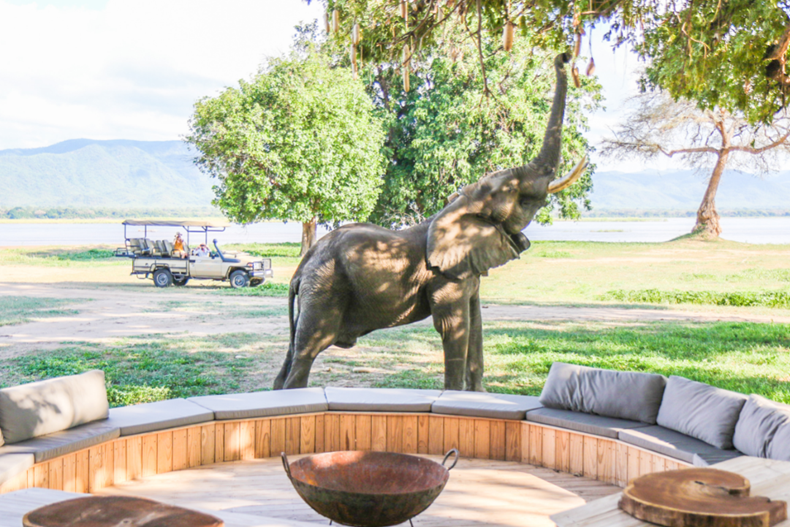Tourism Provides Hope For Zimbabwes Elephants


Despite recent reports of wildlife struggling to survive in what’s been the country’s worst drought for 20 years, populations of elephant remain positive in Zimbabwe thanks to tourism and the collaboration and support of African Bush Camps, NGO’s and Zimbabwe Parks Management.
Zimbabwe is home to the world’s second largest population of African elephant and protecting this iconic species and the national parks they live in is a global priority. The increase in death of elephants is sadly a normal occurrence during such a dry time of year and serves as a natural population dynamic and provides additional food for predators and endangered vultures. In a month’s time we will not be hearing any reports like these. There are still thousands of elephants alive and well and strong gene pools are maintained across Zimbabwe.
Zimbabwe has around 5 million hectares of national park land which covers 13% of the country’s total land area which under any economy needs serious financial investment. Many private sector companies and NGO’s with support from donors, overseas funding and primarily tourism are helping to protect and preserve this vital heritage.
The African Bush Camps Foundation (ABCF) is funded through tourism from a levy at their camps and lodges across Zimbabwe. It partners with several organisations, individuals and community groups on a variety of initiatives to provide viable solutions and best practice models to protect wildlife, through education and community empowerment.
Water is a precious resource and working with Friends of Hwange Trust ABCF are working to develop and maintain water resources in Hwange National Park for the benefit of its wildlife, in collaboration with the Authorities responsible for the Park. Hwange National Park has very little natural surface water during the dry months of the year. Most of the water has to be pumped from underground sources to surface pans so that the wildlife can drink, and 100% solar energy is the ultimate goal to meet their mission to ensure it does everything in its power to prevent animal deaths owing to lack of water.
As a founding member of the Conservation and Wildlife Foundation (CWF) African Bush Camps supports critical conservation work by providing an additional CWF bed levy on all nights at their lodges and camps in Hwange National Park. CWF recent ‘Tuskers project’ focuses on the collaring of key Elephants in the area to establish research into the seasonal movements of both bulls and cows to help locate better water sources, protect community areas to reduce conflict and assisting with law enforcement and anti-poaching patrols.
Bumi Hills Safari Lodge on the shores of Lake Kariba is neighbour and a key supporter to the Bumi Hills Anti-poaching Unit an organisation set up to tackle the devastating decline of the region’s elephant population (approximately 75%). Structured ground coverage in anti-poaching is integral to identify and regulate all classes of illegal activity. But this operation in time consuming and costly to set up and operate. Commercial snaring, subsistence hunting and prohibited harvesting of timber, are all daily infractions. The team use traditional bush skills and innovative technology to allow for a comprehensive approach to land patrols.
Tourism truly does help support the conservation and preservation of Africa’s iconic elephant and continued support during these critical times is vital. All tourism stakeholders have a responsibility to make sure that elephant population numbers remain healthy across the country. We are working hard within the private sector to offer support to Zimbabwe parks and local communities to mitigate human-wildlife conflict and feel offering solutions and continuously working on improving these are more beneficial during these tough times.
African Bush Camps have crafted an immersive experience called the Community & Conservation Safari. On each leg of this safari, guests will see incredible wildlife, stay at African Bush Camps sustainable tented camps and will be able to visit the projects the Foundation has partnered with local communities on, giving them a glimpse into the fascinating world of responsible tourism and why African Bush Camps and African Bush Camps Foundation co-exist.
https://africanbushcamps.com/safaris/community-conservation-safari/
More pictures here:
https://africanbushcamps.com/safaris/community-conservation-safari/
Watch video here:
